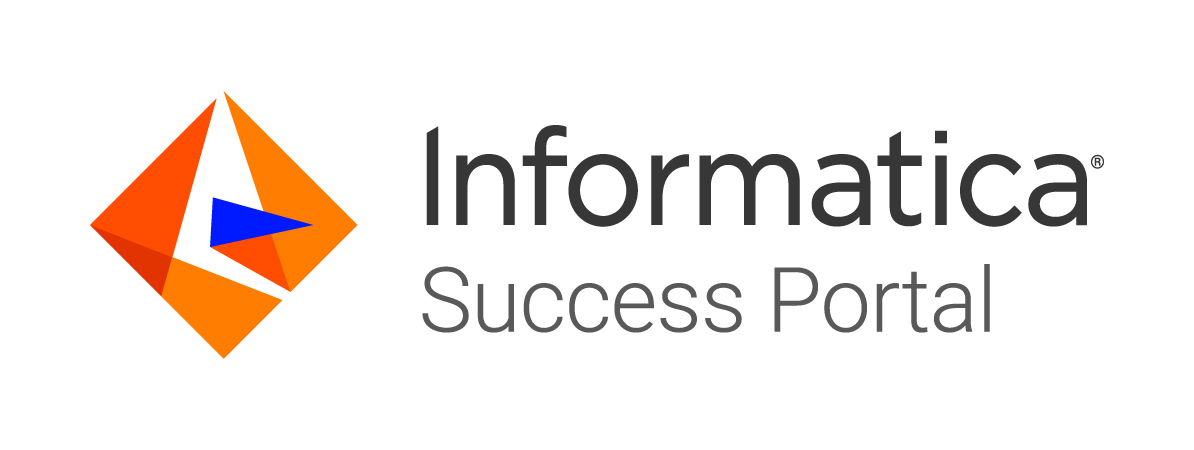-
Manage your Success Plans and Engagements, gain key insights into your implementation journey, and collaborate with your CSMsSuccessAccelerate your Purchase to Value engaging with Informatica Architects for Customer SuccessAll your Engagements at one place
-
A collaborative platform to connect and grow with like-minded Informaticans across the globeCommunitiesConnect and collaborate with Informatica experts and championsHave a question? Start a Discussion and get immediate answers you are looking forCustomer-organized groups that meet online and in-person. Join today to network, share ideas, and get tips on how to get the most out of Informatica
-
Troubleshooting documents, product guides, how to videos, best practices, and moreKnowledge CenterOne-stop self-service portal for solutions, FAQs, Whitepapers, How Tos, Videos, and moreVideo channel for step-by-step instructions to use our products, best practices, troubleshooting tips, and much moreInformation library of the latest product documentsBest practices and use cases from the Implementation team
-
Rich resources to help you leverage full capabilities of our productsLearnRole-based training programs for the best ROIGet certified on Informatica products. Free, Foundation, or ProfessionalFree and unlimited modules based on your expertise level and journeySelf-guided, intuitive experience platform for outcome-focused product capabilities and use cases
-
Library of content to help you leverage the best of Informatica productsResourcesMost popular webinars on product architecture, best practices, and moreProduct Availability Matrix statements of Informatica productsMonthly support newsletterInformatica Support Guide and Statements, Quick Start Guides, and Cloud Product Description ScheduleEnd of Life statements of Informatica productsMonitor the status of your Informatica services across regions
Microsoft Fabric Lakehouse Connector in IDMC
Share On:
Description
The Microsoft Fabric Lakehouse Connector enables seamless data interaction between Informatica's Cloud Data Integration platform and Microsoft Fabric Lakehouse by supporting secure data reading, writing, and lookups. Users can create advanced mappings with transformations and execute tasks on Microsoft Azure's advanced clusters or self-service clusters.
Use cases include:
- Enabling data consolidation and analysis from various sources.
- Facilitating advanced transformations and processing pipelines.
- Supporting use as source, target, or lookup in enterprise-grade data integration processes.
Customer Pre-Requisites
- Power BI Setup:
- Create a workspace.
- Create a lakehouse within the workspace. Admin privileges are required for this step.
- Configure Power BI admin settings to allow Azure Active Directory (AAD) applications to use Power BI APIs.
- Azure Portal Setup:
- Register an application in Azure Active Directory and generate:
- Client ID
- Tenant ID
- Client Secret
- Create a security group in AAD and add members.
- Assign the AAD application to the workspace created in Power BI.
- Register an application in Azure Active Directory and generate:
- Connection Properties:
- Connection name, workspace, and database must be specified.
- Use the SQL connection string in the format <Server>.lakehouse.pbidedicated.windows.net.
- Supported Runtime Environments:
- Secure Agent
- Hosted Agent
- Serverless Runtime Environment
Self-Service Resources
Goals
- Enable efficient data movement and transformation between Microsoft Fabric Lakehouse and various integrated endpoints using Informatica’s platform.
- Unlock advanced analytics capabilities by combining structured and unstructured data efficiently.
- Streamline enterprise data workflows with automated advanced mappings supported by elastic execution clusters.
Business/Technical Outcomes
- Enhanced data integration with reduced effort for connecting and managing Fabric Lakehouse data.
- Advanced data processing capabilities, including SQL ELT mode and runtime query overrides.
- Improved workflow efficiency with flexible transformation capabilities and robust monitoring via Informatica's platform.
- Integration Developer: Configures connections and mappings.
- Cloud Architect: Designs scalable and efficient data workflows.
- Administrator: Manages Azure/Power BI prerequisites and runtime environments.
- Business Analyst: Monitors and acts on data integration results.
Actions
Add to Favorites
Remove from Favorites
Engagement Details
Catalog Type
Ask An Expert
Engagement Category
Feature Clarity
Products
Cloud Data Integration
Engagement Type
Ask An Expert
Adoption Stage
Configure
Implement
Focus Area
Adoption - Technical
Functional
Engagement ID
AAE-CDI-032
Disclaimer
- All the topics covered in the Success Accelerators/Ask An Expert sessions are intended for guidance and advisory only. This is implicit and it will not be called out under the scope of each engagement.
- Customers need to include their relevant technical/business team members highlighted in each engagement topic to derive the best out of each engagement.
- Customers need to perform any hands-on work by themselves leveraging the guidance from these engagements.
- Customers need to work with Informatica Global Customer Support for any product bugs/issues and troubleshooting.
